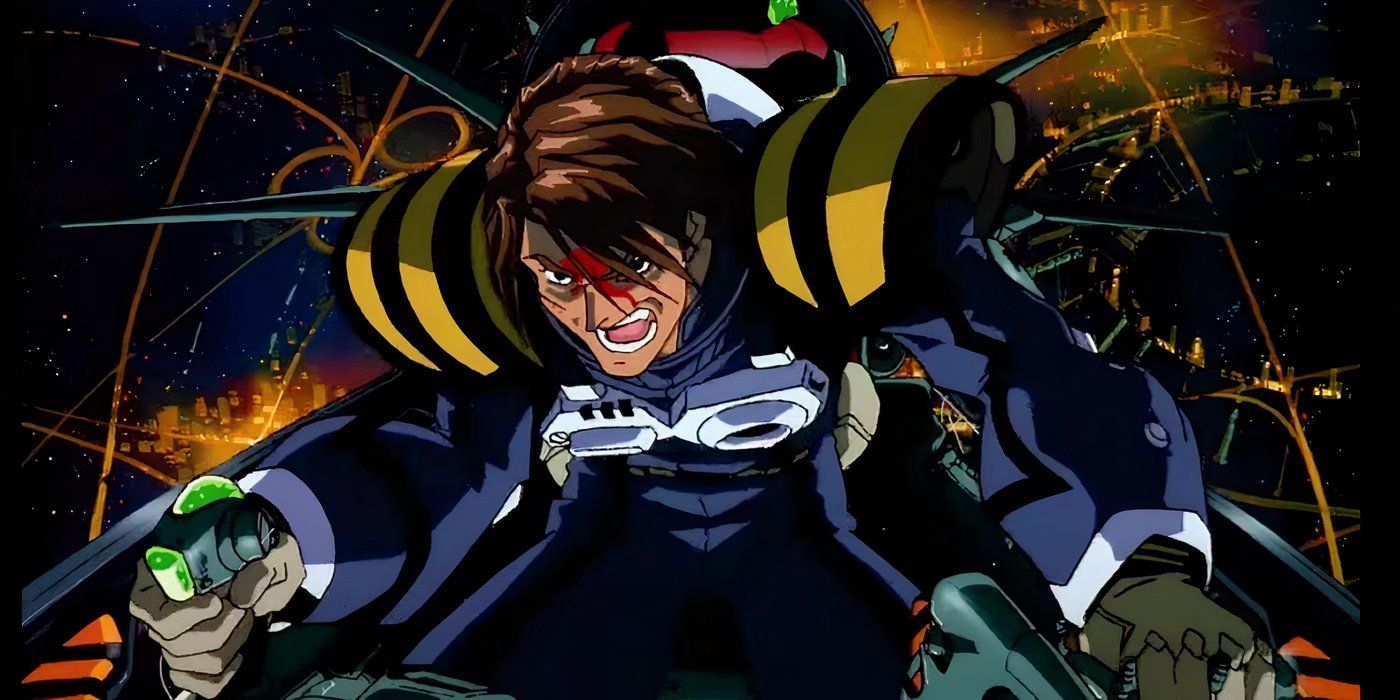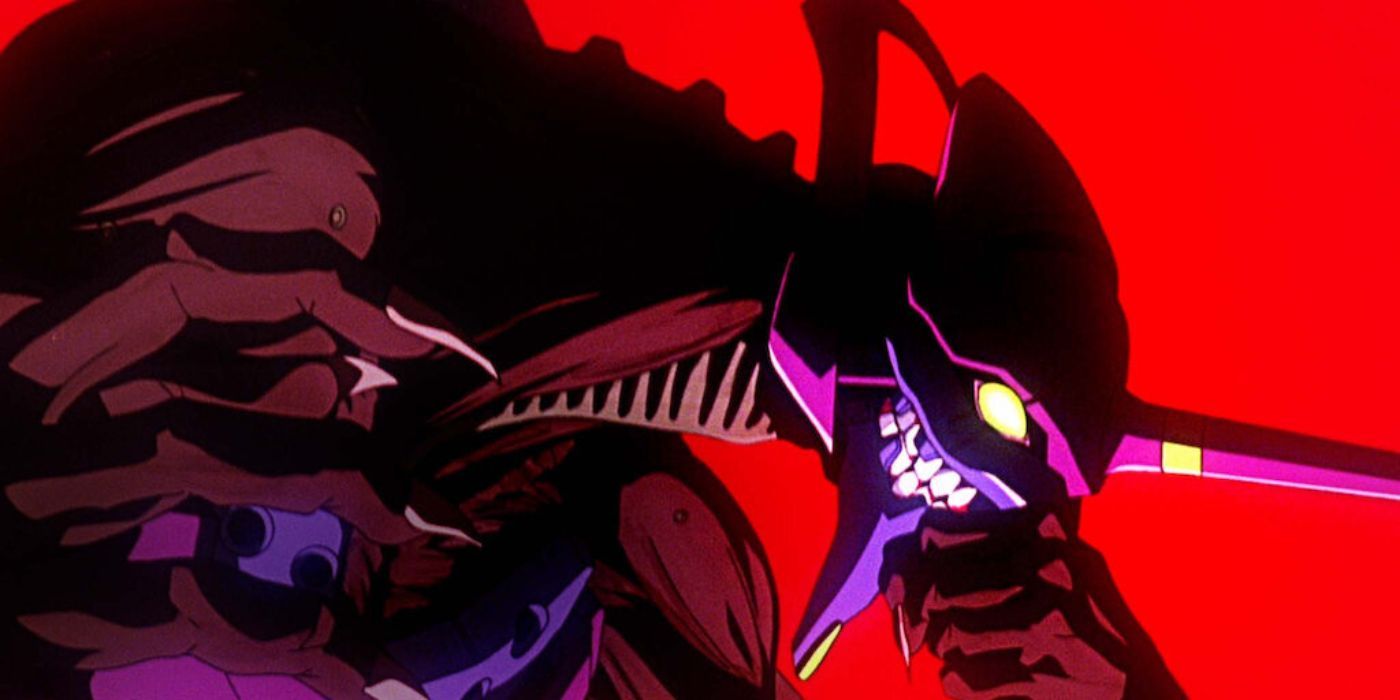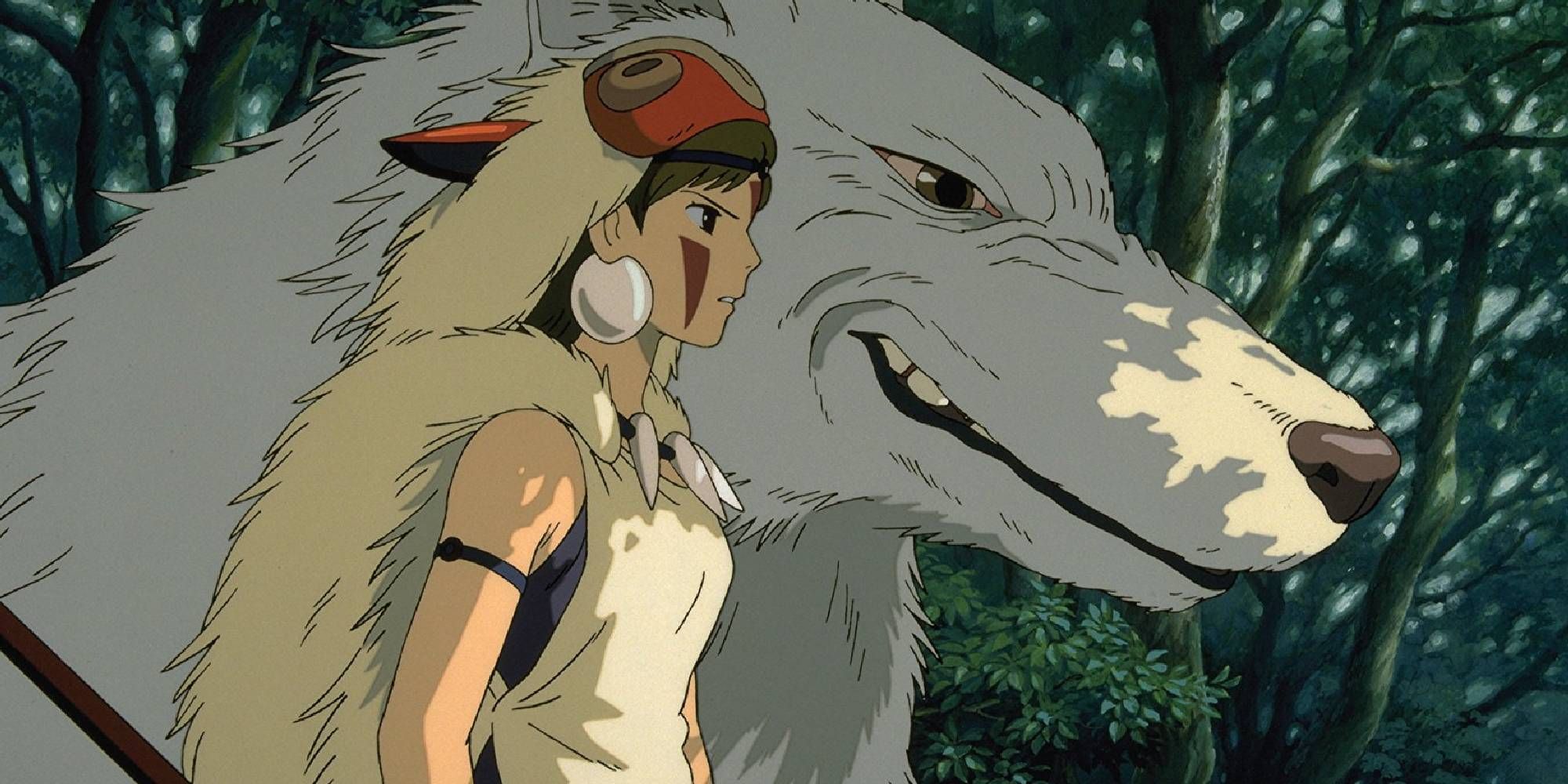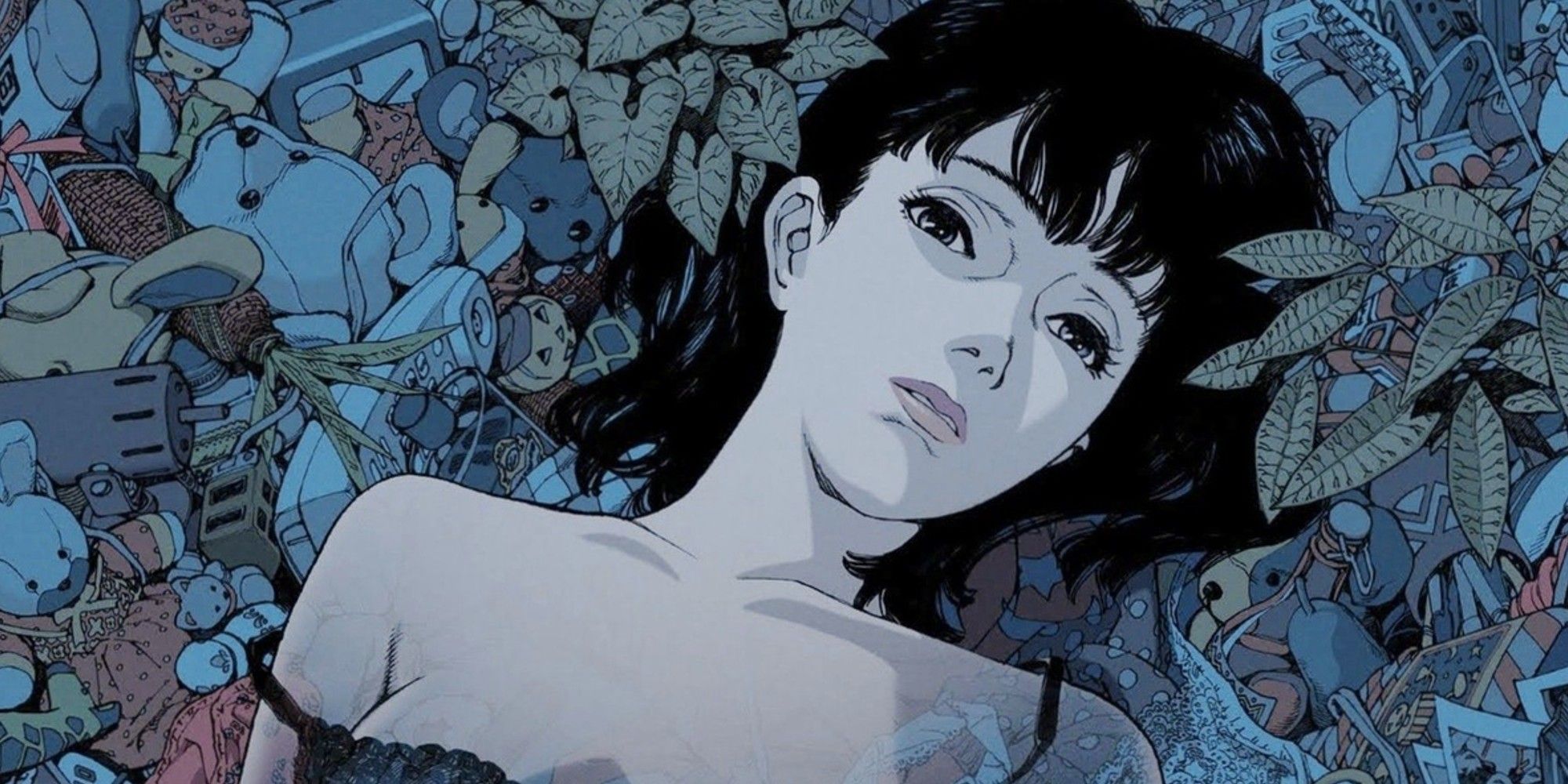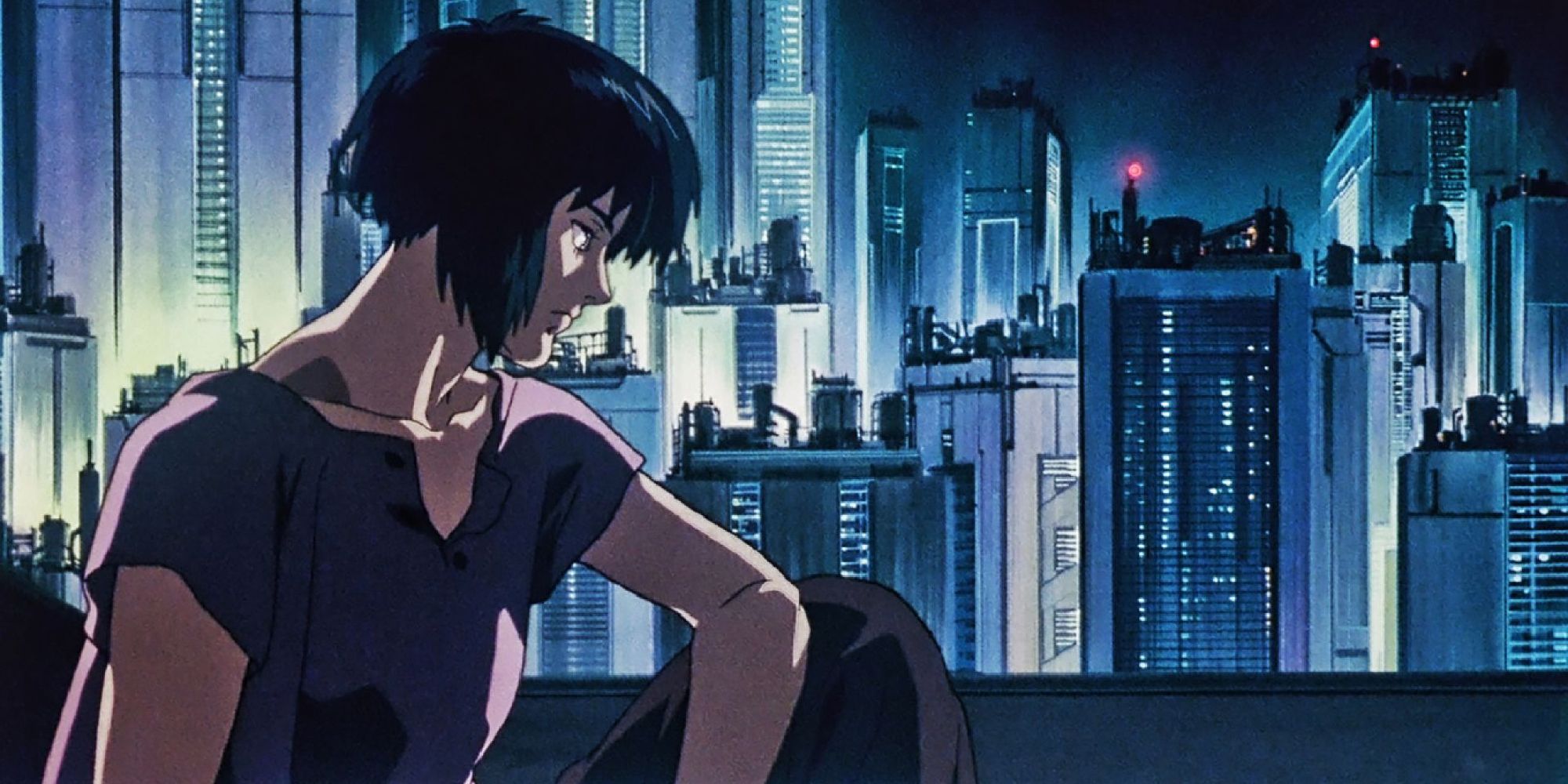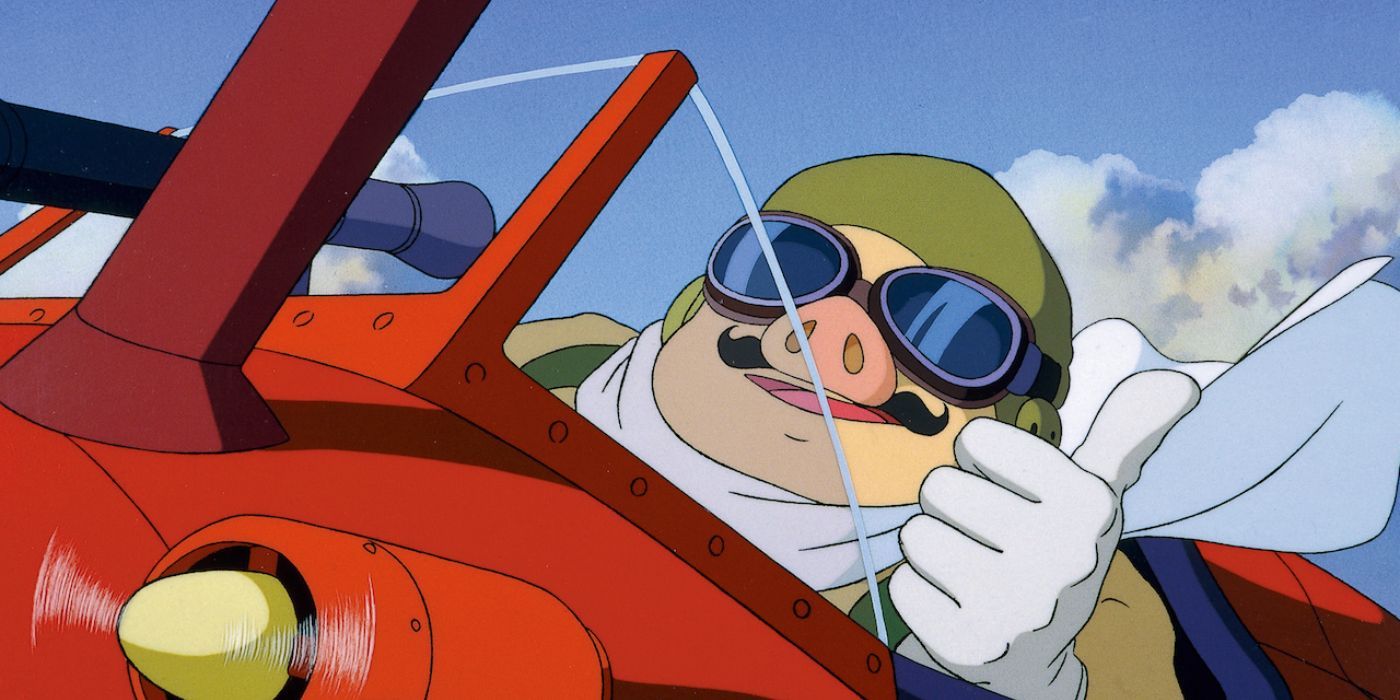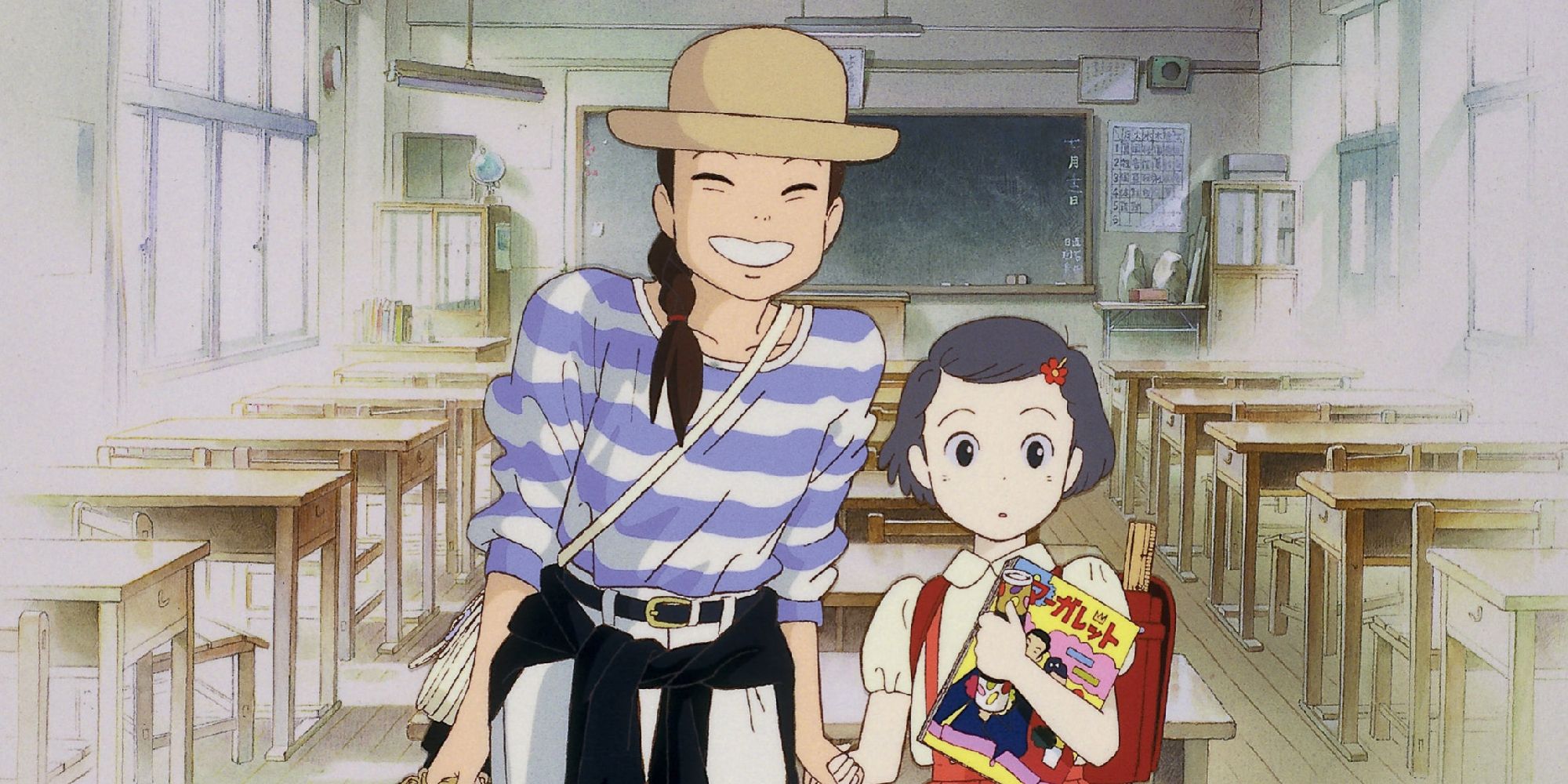“A pig that doesn’t fly is just a pig.”
The Big Picture
- The 90s anime films were groundbreaking, influencing Western culture and establishing iconic classics still revered today.
- Jin-Roh, Ninja Scroll, Macross Plus, and more offer diverse genres and styles, showcasing anime greatness.
- From political dramas to action-packed adventures, anime from the 90s continues to captivate audiences with its timeless storytelling.
The 90s was an incredible time for anime in film. Thanks to companies like Studio Ghibli and Production I.G, these films actually helped anime become more accepted in the West and deeply influenced modern pop culture. Before anime was mainstream and thus cool, several masterpieces of the 90s turned the heads of general audiences and made them think differently.
For fans of anime, this decade was unbelievable and defined so much of anime culture, film and television. Certain acclaimed and popular movies made history and are still looked back on as some of the greatest anime efforts of all time. From animated triumphs widely regarded as groundbreaking classics to underappreciated gems that are no less worthy, there’s no denying that these films are iconic staples in the anime medium.
10 ‘Jin-Roh: The Wolf Brigade’ (1999)
Directed by Hiroyuki Okiura
Jin-Roh: The Wolf Brigade touches on the idea of society’s predators and their prey. Set in an alternate version of history where the Nazis won World War II, the film follows Kazuki, the traumatized member of an elite police tactical unit, who falls for a young woman, the sister of a terrorist he witnessed commit suicide in a bombing. Soon, the ghost of the dead woman begins to haunt him as he is put on trial for reconditioning.
When most general audiences think of anime, they think of popular action series like My Hero Academia and Attack on Titan or romances like Your Lie in April. But what sets Jin-Roh: The Wolf Brigade apart from most anime is the fact that it’s a slow-burn political drama. This noir features a fascist dystopia that is methodical, gets audiences thinking, and provides deep commentary on society as the world knows it.
9 ‘Ninja Scroll’ (1993)
Directed by Yoshiaki Kawajiri
When expert ninja Jubei is tricked into killing his fellow swordsmen, he leaves his life behind and becomes a killer for hire. As he travels, Jubei comes across a clan of demonic ninjas and must stop them from taking over the government of Japan.
To put it simply, Ninja Scroll is an all around great action movie. The animation is absolutely beautiful and holds up incredibly well to this day. While the premise may seem like a simple-minded and gratuitously violent bloodbath, every character is diverse and keeps the fights and dialogue engaging. Good action can’t work as well without a good plot, and Ninja Scroll‘s intricate, thought-provoking narrative is compelling enough to enhance the action at play.
Buy on Amazon
8 ‘Macross Plus’ (1995)
Directed by Shoji Kawamori
Originally a television series, Macross Plus was re-edited into a theatrical version following its completion. The plot follows two old friends turned rivals who are assigned to competing test pilot projects involving jet aircraft with transforming abilities. Just when things heat up, an old flame from their past enters the fray, bringing bittersweet memories to the forefront and making things far more complicated.
Filled to the brim with stunning animation and thrilling pacing,
Macross Pluss
is a triumph of the action and sci-fi genres.
Macross Plus is the perfect film for fans of franchises like Top Gun and Gundam. Filled to the brim with stunning animation and thrilling pacing, the film is a triumph of the action and sci-fi genres. The dub is fairly good, but the original version is intense, emotionally riveting, and astoundingly well-acted, as the performances go a long way in enhancing the plot and making the animation even more exciting. Macross Plus is ambitious, narratively challenging, and endlessly entertaining, crafting a mechanical world with no equal.
7 ‘The End of Evangelion’ (1997)
Directed by Hideaki Anno and Kazuya Tsurumaki
Marking the end of the first iteration of the Neon Genesis Evangelion franchise, The End of Evangelion rocked the world with a final movie worthy of its revered franchise. The film happens at the same time as the final two episodes of the television series, set within protagonist Shinji Ikari’s head. Thus, The End of Evangelion is dedicated to showcasing the events happening in the real world as Ikari faces his emotions.
The End of Evangelion‘s deconstruction of the mech genre garnered a slew of popular reviews which still hold up to this day. Aside from the film taking a tad bit more mental work than usual to understand, people seem to have nothing but good things to say about this otherwise wonderful finale to the fan-favorite series. The End of Evangelion serves as an example of how to make a great conclusion, delivering all the thrills without forgetting the emotional beats.
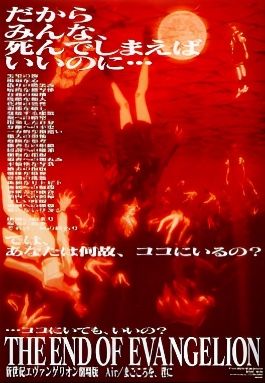
Neon Genesis Evangelion: The End of Evangelion
- Release Date
- July 19, 1997
- Cast
- Megumi Ogata , Megumi Hayashibara , Kotono Mitsuishi
- Runtime
- 1 hr 27 min
6 ‘Princess Mononoke’ (1997)
Directed by Hayao Miyazaki
If there’s anyone who reigns supreme in the anime film space, it’s Hayao Miyazaki and Studio Ghibli. The 90s is easily one of Studio Ghibli’s best eras, thanks to films like Princess Mononoke. When a young boy named Ashitaka seeks out the god Shishigami to cure his body of an infection he suffers from after an animal attack, he finds himself in a war between the gods of the forest and the humans who suck away its resources. This sends him in the direction of Princess Mononoke and her companion, the wolf god Moro.
One of the core conflicts in storytelling is Man versus Nature, and few films encapsulate that primordial struggle better than Princess Mononoke. With how much humans seem to be continuously degrading the planet in the modern age, this film seems to ring just as true today as it did in 1997. Beyond its timeless and potent message, Princess Mononoke is a spectacular animated tour-de-force and arguably Miyazaki’s most intimate work.
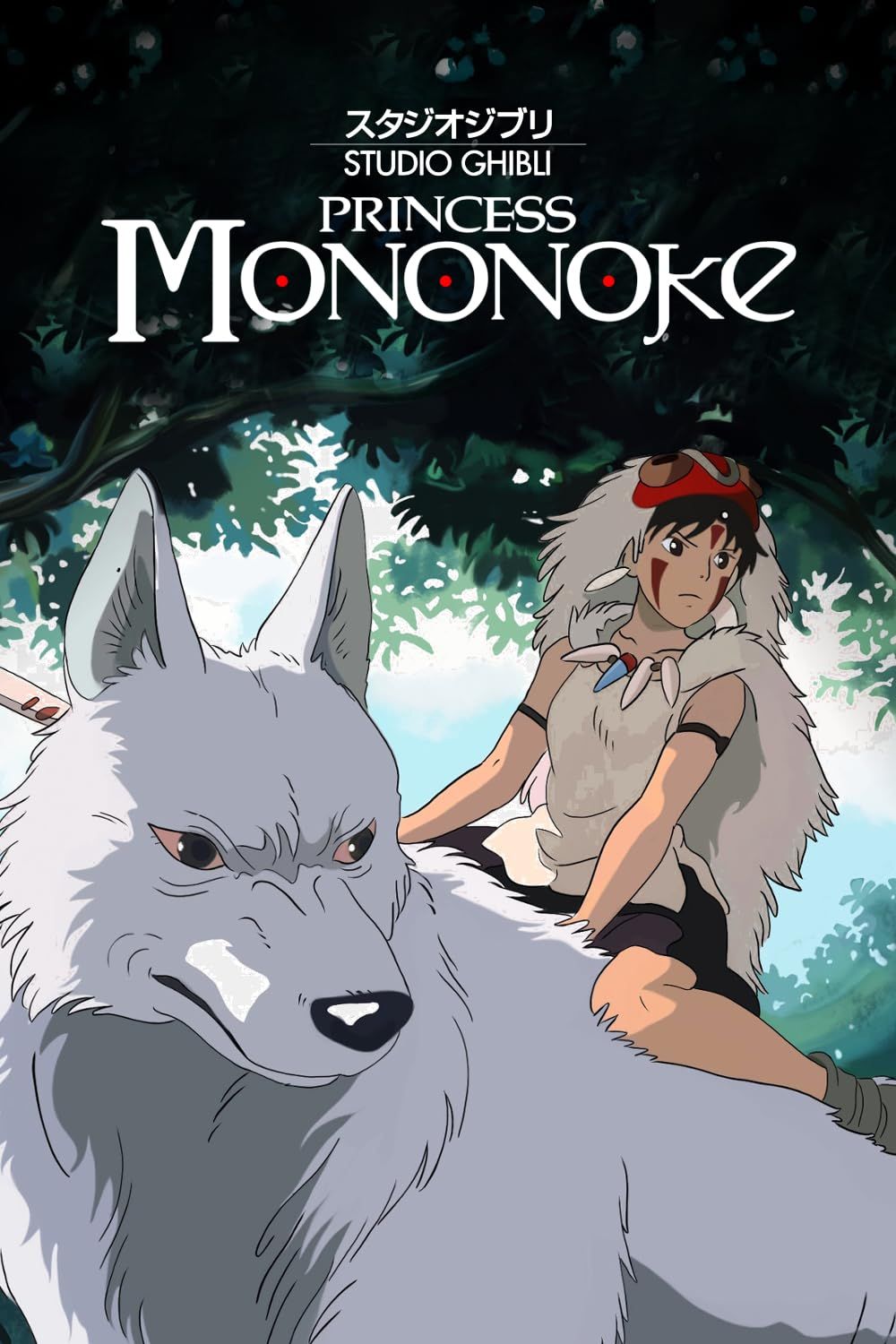
Princess Mononoke (1997)
- Release Date
- July 12, 1997
- Cast
- Yôji Matsuda , Yuriko Ishida , Yûko Tanaka , Kaoru Kobayashi , Masahiko Nishimura , Tsunehiko Kamijô
- Runtime
- 134 minutes
- Writers
- Hayao Miyazaki
5 ‘Perfect Blue’ (1997)
Directed by Satoshi Kon
Perfect Blue is an institution in modern anime. Mima Kierigoe is a Japanese singer encouraged to give up her career as a singer to become an actress. Soon, she lands a role in a murder mystery television series. But when she starts to get pursued by a tormenting fan and her past itself, Mima begins to lose her grip on reality.
This stirring psychological thriller brings twists at seemingly every turn and is one of those films that really gets the viewer thinking, thanks to its challenging and daunting narrative. The way the script of Mima’s acting debut reflects her real life brings nightmares and dreams, blending them with the real world and enhancing the story, keeping it elusive yet engaging. Visually stunning and highly stylized, Perfect Blue is a genuine cinematic experience, attacking every sense with its haunting and mesmeric approach.
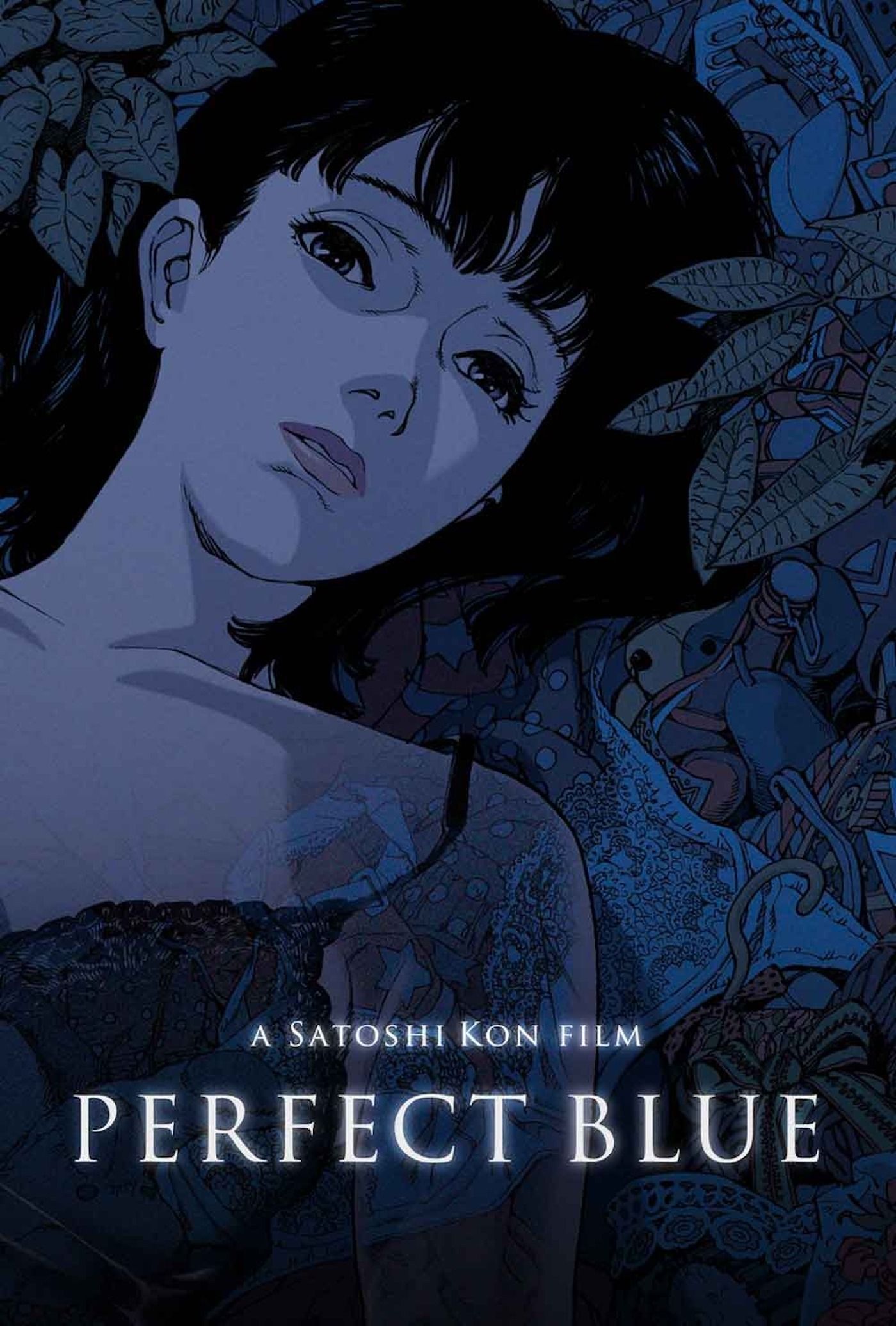
Perfect Blue (1997)
- Release Date
- February 28, 1998
- Cast
- Junko Iwao , Rica Matsumoto , Masaaki Ôkura , Shinpachi Tsuji
- Runtime
- 81
4 ‘Ghost in the Shell’ (1995)
Directed by Mamoru Oshii
The original 1995 Ghost in the Shell is one of the best pieces of media in the cyberpunk genre. Set in 2029 in the fictional New Port City, the plot centers on Motoko Kusanagi, a cyborg haunting an elusive ghost hacker known as the Pupper Master.
Ghost in the Shell is intelligent and creepily prophetic of current society, featuring a world dominated by technology. It’s also one of the first anime films of all time to incorporate CGI and blend it with traditional two-dimensional imagery. Coupled with its addictive and twisting narrative, Ghost in the Shell becomes not just an expertly executed film but a groundbreaking achievement. Director Mamoru Oshii crafted one of the most sophisticated films of the 90s, which continues to influence modern science fiction.
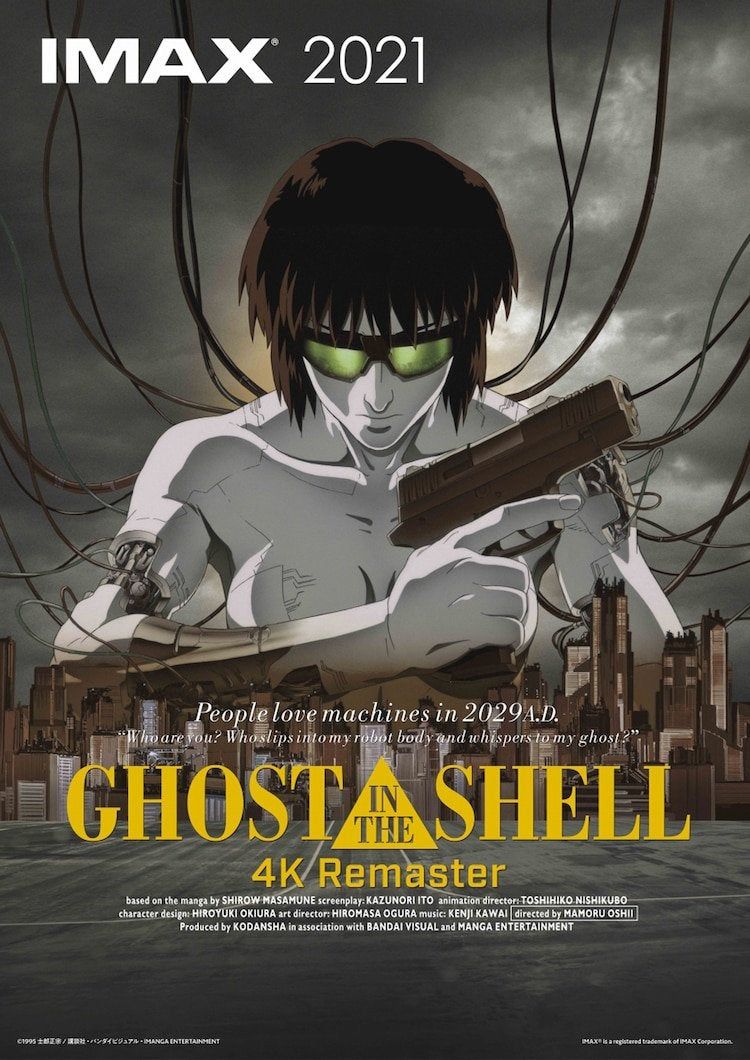
Ghost in the Shell (1995)
- Release Date
- December 8, 1995
- Cast
- Atsuko Tanaka , Akio Otsuka , Iemasa Kayumi
- Runtime
- 82
3 ‘Whisper of the Heart’ (1995)
Directed by Yoshifumi Kondo
Shizuku is a young girl who longs to be a writer one day. A love story begins when a boy, Seiji Amasawa, checks out all of her typical library books, prompting her to seek him. She begins to write her first book and meets a large cat, sending her down a wild road as she grows and becomes who she was always meant to be.
Unlike many of Studio Ghibli’s typical films, Whisper of the Heart doesn’t follow otherworldly creatures or supernatural lands. Rather, the film is simply about a young girl facing the trials and tribulations of growing up and the bittersweet parts of life that come with it. Whisper of the Heart is a genuine and honest study of what it’s like to be a young person on the brink of adulthood. It’s an incredibly relatable film that is inexplicably authentic, a classic coming-of-age tale with an enduring and near-universal quality.
2 ‘Porco Rosso’ (1992)
Directed by Hayao Miyazaki
Porco Rosso, a veteran World War I pilot cursed to look like a man-pig, takes to the skies once again to chase down air pirates who are attacking cruise ships across the waters. When tensions rise, he seeks aid from a mechanic named Fio Piccolo and an old friend named Madame Gina.
The action in the air depicted in Porco Rosso is rip-roaring and some of Studio Ghibli’s best-set action pieces to this day. It’s widely considered the most underrated Studio Ghibli film and one of the studio’s most whimsical. Porco Rosso is a great analysis of a side of war not typically represented in films, focusing on the men and women who don’t feel comfortable fighting a war for a country they don’t believe is doing the right thing. After all, in the words of the protagonist himself, “I’d rather be a pig than a fascist.”
1 ‘Only Yesterday’ (1991)
Directed by Isao Takahata
Studio Ghibli is the undisputed titan of anime, and Only Yesterday is a perfect example, showing how the studio is consistently attentive to providing quality products. The film follows the life of career woman Taeko Okajima at two places in her life, showing her at the age of 27 and the age of 10 through flashbacks. Looking back on her life, she can’t help but wonder if she ended up where her younger self would have wanted to be.
Only Yesterday is one of Studio Ghibli’s most honest and touching movies. The beloved and acclaimed production house took the idea of what a coming-of-age film is, flipped it on its head, and made a timeless masterpiece that is both insightful and endearing. It cannot be understated how wonderfully executed Only Yesterday is, resulting in a crucial and loving depiction of life and maturity that will ring true to anyone watching, no matter what point of their lives they find themselves in.
Only Yesterday
- Release Date
- July 20, 1991
- Cast
- Daisy Ridley , Dev Patel , Ashley Eckstein , Alison Fernandez , Miki Imai , Toshirô Yanagiba
- Runtime
- 118 minutes
- Writers
- Isao Takahata
This article was originally published on collider.com



